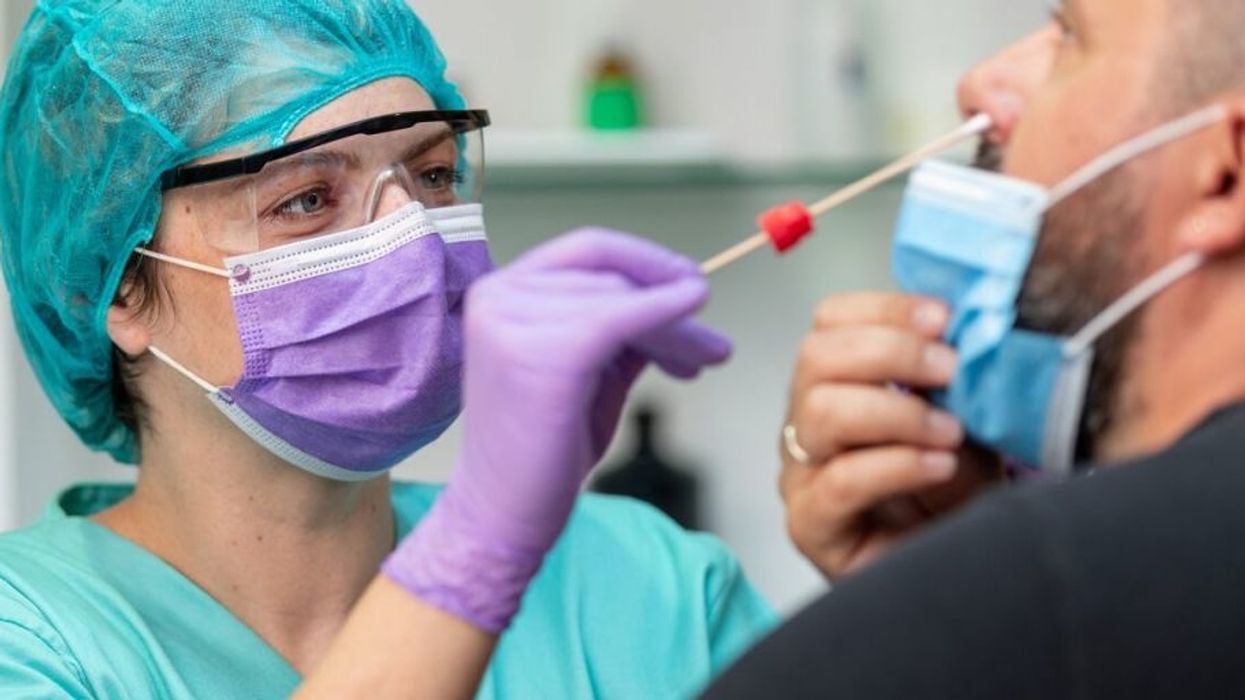New Virus Mutation Is ‘Potential Catastrophe’
Reprinted with permission from Alternet
Many health officials are being asked whether or not they believe that the new COVID-19 variant that has been spreading rapidly in the U.K. could reduce the efficacy of the vaccines now being distributed. Socoiologist Zeynep Tufekci notes that so far, "many scientists" believe that this variant "will not decrease vaccine efficacy much, if at all." But Tufekci, in an article published by The Atlantic on the last day of 2020, also warns that even if the variant slamming the U.K. doesn't limit the vaccines' efficacy, the variant's arrival is still terrible news.
"A more transmissible variant of COVID-19 is a potential catastrophe in and of itself," explains Tufekci, a native of Istanbul, Turkey who now lives in the United States. "If anything, given the stage in the pandemic we are at, a more transmissible variant is, in some ways, much more dangerous than a more severe variant. That's because higher transmissibility subjects us to a more contagious virus spreading with exponential growth — whereas the risk from increased severity would have increased in a linear manner, affecting only those infected."
Tufekci adds, "Increased transmissibility can wreak havoc in a very, very short time — especially when we already have uncontrolled spread in much of the United States. The short-term implications of all this are significant, and worthy of attention, even as we await more clarity from data. In fact, we should act quickly, especially as we await more clarity — lack of data and the threat of even faster exponential growth argue for more urgency of action."
Some cases of the new COVID-19 variant have already been found in the U.S. And Tufekci stresses that even though this variant doesn't appear to be any more likely to kill the infected person than the familiar COVID-19 strain that has been raging in the U.S., the fact that it is so infectious is major cause for concern.
"Severity increases affect only the infected person," Tufekci explains. "That infection is certainly tragic, and this new variant's lack of increase in severity or lethality thankfully means that it is not a bigger threat to the individual who may get infected. It is, however, a bigger threat to society because it can dramatically change the number of infected people. To put it another way, a small percentage of a very big number can easily be much, much bigger than a big percentage of a small number."
Tufekci notes that according to estimates by scientists, the new COVID-19 variant — which is being called "B117" — is around 50-70% more transmissible than "regular COVID-19." And she stresses that the variant might require even stricter precautions and social distancing measures.
"This uncertainty in understanding the variant's exact mechanisms means that we don't know if our existing tools — masks, distancing and disinfecting — are as effective as they were compared with an identical scenario with the regular variant," Tufekci writes. "To be clear, the variant is still a respiratory virus; so, the basic tools will not change, and they will all continue to work. In fact, they have become more important, but we may need to be stricter — less time indoors, better masks, better ventilation, more disinfection of high-touch surfaces — to get the same bang for our protective buck. It may be a small difference, or not. We don't know. We won't know for a while."









Trump Cabinet Nominee Withdraws Over (Sane) January 6 Comments